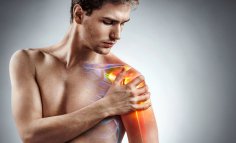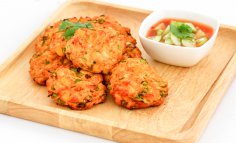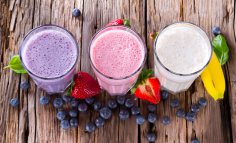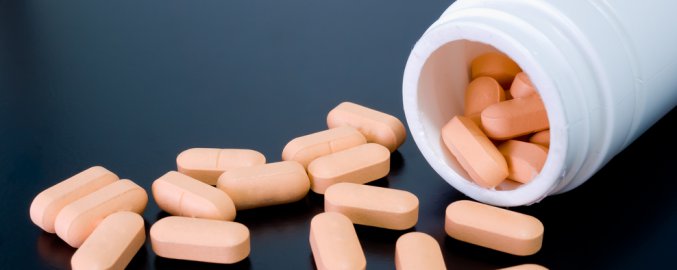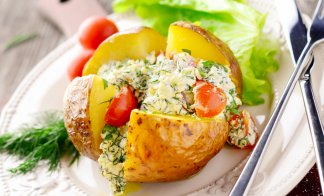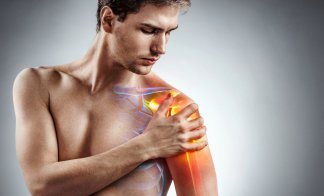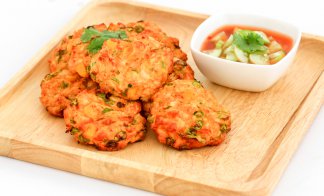Intressant JohnBlond!
Tror en av nycklarna till ett långt liv stavas insulinsensitivitet.
Har man dålig insulinsensitivitet blir musklerna sämre på att reagera på insulin, vilket leder till två saker; dels att kroppen uppfattar mer av energin du får i dig via mat som överflödig och vill i högre grad lagra in den som fett, samt att kroppen utsöndrar mer insulin för att regulera blodsockret. Och ju mer insulin du utsöndrar genom livet, desto mer stress på insulin och IGF "signaling pathways" (1) med kortare livslängd, större risk för åldersrelaterade försämringar av kognitiva funktioner (minne, etc.), större risk för att drabbas av stroke, samt sjukdomar som Alzheimers, Parkinsons och Huntingtons.
Träning och ett sunt kosthåll (i betydningen att man begränsar först och främst mängden kalorier men även glykemiska belastningen) gör helt enkelt att du lever längre och friskare.
Om man är intresserad av att leva ett långt och friskt liv men samtidigt inte begränsa antalet kalorier man får i sig alltför mycket (svårt att bygga muskler då...) kan det vara en idé att glömma det här med att äta ofta och hellre följa ett upplägg med periodisk fasta. Studier visar att periodisk fasta (alltså t.ex. äta all mat för dagen inom en period av ett par timmar och fasta resten av dagen, eller fasta varannan dag) kan ha samma positiva effekter som kalorirestriktion, utan att man behöver begränsa antalet kalorier.
Periodisk fasta ökar insulinsensitiviteten (2).
Studier om periodisk fasta och livslängd, Alzheimers, etc (3,4,5,6,7).
1. "Single gene mutations that extend lifespan have drastically changed ageing research because they offer potential answers to the questions of why and how we age. Mutations that lower activity of the insulin and insulin-like growth factor signalling (IIS) pathways extend the lifespan of worms, flies and mice. It is possible, therefore, to learn about human ageing from the conserved features of these long-lived models. Here, we summarise the available data in this light.
Models of insulin signalling and longevity. Drug Discovery Today: Disease Models. Volume 2, Issue 4, Winter 2005, Pages 249-256
2. "Insulin resistance is currently a major health problem. This may be because of a marked decrease in daily physical activity during recent decades combined with constant food abundance. This lifestyle collides with our genome, which was most likely selected in the late Paleolithic era (50,000-10,000 BC) by criteria that favored survival in an environment characterized by fluctuations between periods of feast and famine. The theory of thrifty genes states that these fluctuations are required for optimal metabolic function. We mimicked the fluctuations in eight healthy young men [25.0 +/- 0.1 yr (mean +/- SE); body mass index: 25.7 +/- 0.4 kg/m(2)] by subjecting them to intermittent fasting every second day for 20 h for 15 days. Euglycemic hyperinsulinemic (40 mU.min(-1).m(-2)) clamps were performed before and after the intervention period. Subjects maintained body weight (86.4 +/- 2.3 kg; coefficient of variation: 0.8 +/- 0.1%). Plasma free fatty acid and beta-hydroxybutyrate concentrations were 347 +/- 18 and 0.06 +/- 0.02 mM, respectively, after overnight fast but increased (P < 0.05) to 423 +/- 86 and 0.10 +/- 0.04 mM after 20-h fasting, confirming that the subjects were fasting. Insulin-mediated whole body glucose uptake rates increased from 6.3 +/- 0.6 to 7.3 +/- 0.3 mg.kg(-1).min(-1) (P = 0.03), and insulin-induced inhibition of adipose tissue lipolysis was more prominent after than before the intervention (P = 0.05). After the 20-h fasting periods, plasma adiponectin was increased compared with the basal levels before and after the intervention (5,922 +/- 991 vs. 3,860 +/- 784 ng/ml, P = 0.02). This experiment is the first in humans to show that intermittent fasting increases insulin-mediated glucose uptake rates, and the findings are compatible with the thrifty gene concept."
Effect of intermittent fasting and refeeding on insulin action in healthy men. J Appl Physiol. 2005 Dec;99(6):2128-36. Epub 2005 Jul 28.
3. "We conclude that caloric restriction and intermittent fasting dietary regimens can ameliorate age-related deficits in cognitive function by mechanisms that may or may not be related to Abeta and tau pathologies."
Intermittent fasting and caloric restriction ameliorate age-related behavioral deficits in the triple-transgenic mouse model of Alzheimer's disease. Neurobiol Dis. 2007 Apr;26(1):212-20. Epub 2007 Jan 13.
4. "The vulnerability of the nervous system to advancing age is all too often manifest in neurodegenerative disorders such as Alzheimer's and Parkinson's diseases. In this review article we describe evidence suggesting that two dietary interventions, caloric restriction (CR) and intermittent fasting (IF), can prolong the health-span of the nervous system by impinging upon fundamental metabolic and cellular signaling pathways that regulate life-span. CR and IF affect energy and oxygen radical metabolism, and cellular stress response systems, in ways that protect neurons against genetic and environmental factors to which they would otherwise succumb during aging."
Caloric restriction and intermittent fasting: two potential diets for successful brain aging.
Ageing Res Rev. 2006 Aug;5(3):332-53. Epub 2006 Aug 8.
5. "Intermittent fasting (IF; reduced meal frequency) and caloric restriction (CR) extend lifespan and increase resistance to age-related diseases in rodents and monkeys and improve the health of overweight humans. Both IF and CR enhance cardiovascular and brain functions and improve several risk factors for coronary artery disease and stroke including a reduction in blood pressure and increased insulin sensitivity. Cardiovascular stress adaptation is improved and heart rate variability is increased in rodents maintained on an IF or a CR diet. Moreover, rodents maintained on an IF regimen exhibit increased resistance of heart and brain cells to ischemic injury in experimental models of myocardial infarction and stroke. The beneficial effects of IF and CR result from at least two mechanisms--reduced oxidative damage and increased cellular stress resistance. Recent findings suggest that some of the beneficial effects of IF on both the cardiovascular system and the brain are mediated by brain-derived neurotrophic factor signaling in the brain. Interestingly, cellular and molecular effects of IF and CR on the cardiovascular system and the brain are similar to those of regular physical exercise, suggesting shared mechanisms. A better understanding of the cellular and molecular mechanisms by which IF and CR affect the blood vessels and heart and brain cells will likely lead to novel preventative and therapeutic strategies for extending health span."
Beneficial effects of intermittent fasting and caloric restriction on the cardiovascular and cerebrovascular systems.
J Nutr Biochem. 2005 Mar;16(3):129-37.
6. "Although all cells in the body require energy to survive and function properly, excessive calorie intake over long time periods can compromise cell function and promote disorders such as cardiovascular disease, type-2 diabetes and cancers. Accordingly, dietary restriction (DR; either caloric restriction or intermittent fasting, with maintained vitamin and mineral intake) can extend lifespan and can increase disease resistance. Recent studies have shown that DR can have profound effects on brain function and vulnerability to injury and disease. DR can protect neurons against degeneration in animal models of Alzheimer's, Parkinson's and Huntington's diseases and stroke. Moreover, DR can stimulate the production of new neurons from stem cells (neurogenesis) and can enhance synaptic plasticity, which may increase the ability of the brain to resist aging and restore function following injury. Interestingly, increasing the time interval between meals can have beneficial effects on the brain and overall health of mice that are independent of cumulative calorie intake."
Meal size and frequency affect neuronal plasticity and vulnerability to disease: cellular and molecular mechanisms.
J Neurochem. 2003 Feb;84(3):417-31.
7. "Dietary restriction has been shown to have several health benefits including increased insulin sensitivity, stress resistance, reduced morbidity, and increased life span.
"intermittent fasting resulted in beneficial effects that met or exceeded those of caloric restriction including reduced serum glucose and insulin levels and increased resistance of neurons in the brain to excitotoxic stress. Intermittent fasting therefore has beneficial effects on glucose regulation and neuronal resistance to injury in these mice that are independent of caloric intake."
Intermittent fasting dissociates beneficial effects of dietary restriction on glucose metabolism and neuronal resistance to injury from calorie intake. Proc Natl Acad Sci U S A. 2003 May 13; 100(10): 6216–6220.



